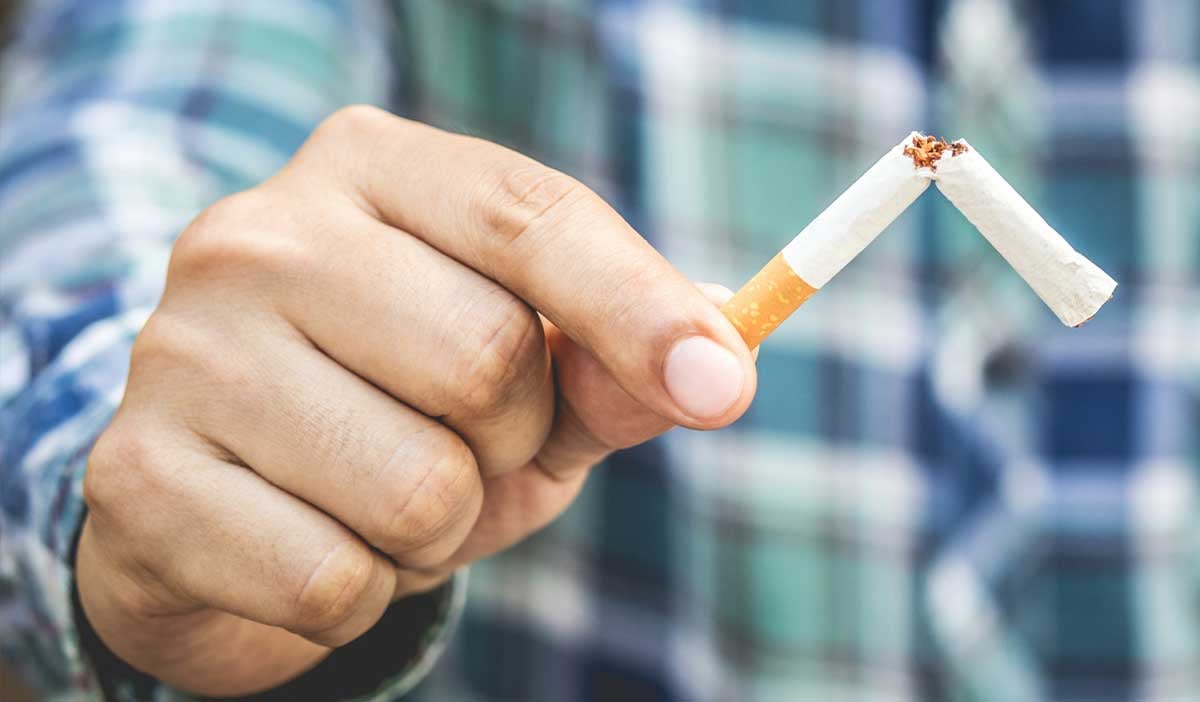Cigarettes are addictive, and it can be tough to give up smoking.
But if you're a smoker, quitting will improve your life in many ways.
It will especially make a difference if you have an upcoming surgery scheduled because smoking increases your risk of experiencing problems during surgery and while you're recovering.

According to the American College of Surgeon, non-smoking patients experience more complications before and after surgery than those patients who do not smoke.
If you can, aim to quit four to six weeks before your operation (and staying away from cigarettes after) to maximize the benefits of giving up smoking.
It's never too late to quit. Even if you aren't ready to give up your habit long-term, quitting even a day or two before your surgery will make a difference.
Why quitting smoking helps
Quitting smoking improves healing: Your body is going to need a lot of oxygen and nutrients to help you mend after surgery. When you give up smoking cigarettes, you'll be helping your body get enough healthy oxygen to build new tissue and repair wounds.
Quitting smoking lowers risk of blood clots: Smoking makes your blood thicker. Thicker blood has a harder time moving through your blood vessels, and this raises your risk of developing a blood clot that can cause a heart attack or stroke. By quit smoking, you'll decrease your chances of getting a blood clot.
Quitting smoking improves your ability to fight infections: When you smoke, your blood less able to fight off infections. When you get an infection after surgery, getting better might mean you'll have to stay in the hospital longer, start taking antibiotics, or, in some cases, even get another surgery.
Quitting smoking decreases joint pain: The chemicals from smoking increase how much your body swells, and this increased inflammation causes increased pain. Stopping smoking may help you experience less pain after surgery.
Working toward being smoke-free
When you make the decision to give up smoking and using tobacco, you'll start noticing small improvements in your overall health every day of your recovery.
From increased energy to being able to breathe easier, smoking cessation isn't easy, but it comes with many health benefits.
Handling withdrawal symptoms
Though a large part of quitting smoking is mental, many patients find it helpful to use a nicotine replacement to help manage feelings of withdrawal and urges to smoke.
Many patients who have been smoking for a long time or who have a heavy habit notice smoking is connected to everyday activities.
As you build new habits, you may find that it takes time and effort to disconnect everything you do from smoking. During the process of quitting smoking, some people change up their daily routine to avoid old scenarios where they always used to light up a cigarette.
Changes might be as simple as taking a different route to work, switching to tea instead of coffee, or eating different foods.
Trying to stop smoking before your surgery? Let us help.
For free help to quit smoking, call the Indiana Tobacco Quitline: 1.800.QUIT.NOW (784.8669)
You can also enroll in smoking cessation classes offered by our staff respiratory therapist. Classes can be flexibly scheduled to make attending easy and convenient for you. Call Emily Miller at (574) 753-1466 to talk more about your options.



